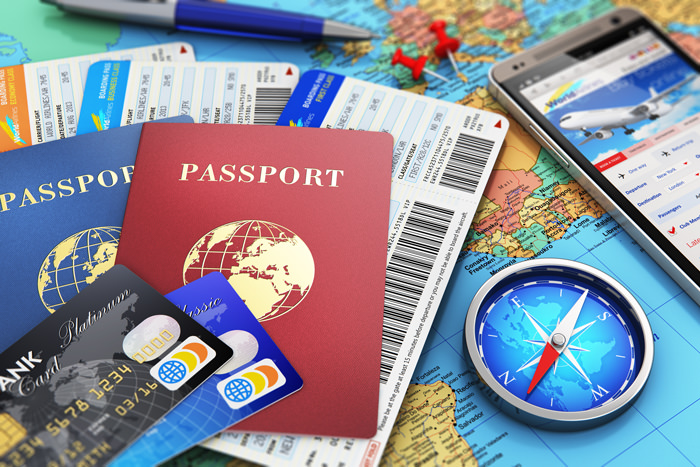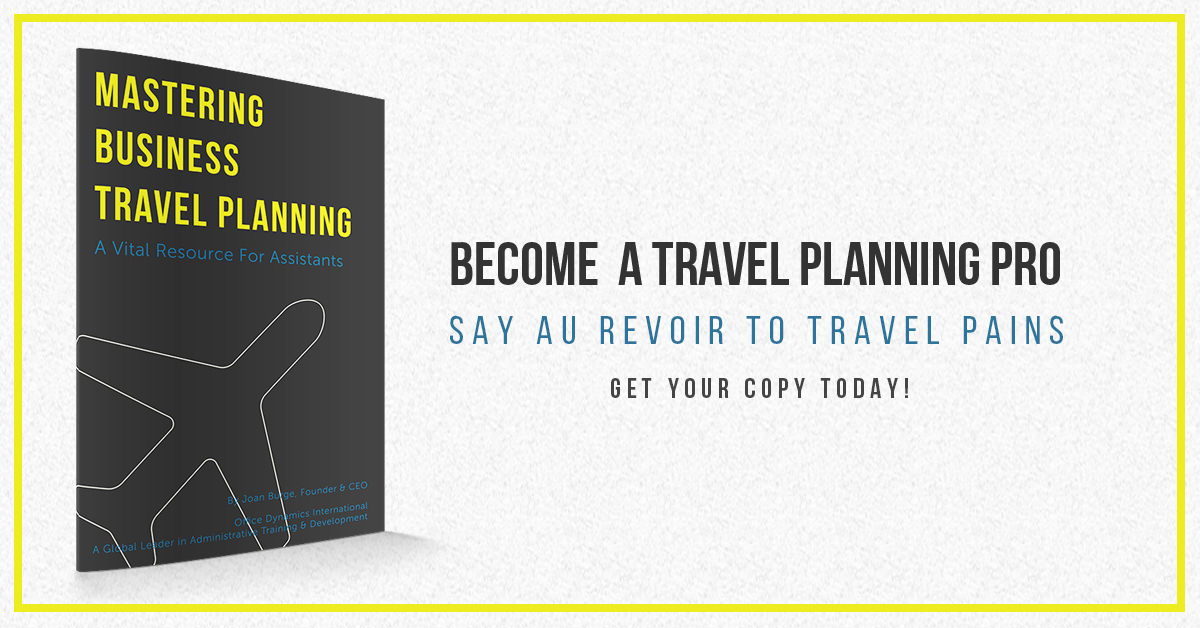What do emotional intelligence and travel planning have in common? Plenty. I have been traveling extensively for business (and a little pleasure) for 3 straight months. To be honest, it is wearing on me. Several of my trips involved being gone for 5 days; only to come home for 3 or 4 days and leave again for a week. I have been a business traveler for 27 years.
While the typical person thinks traveling is glamorous, the business traveler has a different perspective. Often business travelers put in very long days. They may not pack until late at night before their departure the next morning. Then they wake up early to get to the airport in plenty of time to wade through security lines. The traveler then sits and waits until boarding time. Sometimes boarding times are delayed—even by hours. Then the traveler gets to sit on an airplane for hours before finally arriving at their destination.
The busy executive traveler may get to the hotel quickly or not. Hotel check-in is next which usually goes pretty fast but maybe not because a group of conventioneers is checking in. This is followed by dinner and then working on emails and getting ready for the next day’s meetings, or in my case, teaching full-day workshops to 25 attendees. If the executive is dedicated, they will squeeze in their time at the gym. And I must not forget, their time to call their family or significant other or ailing parent.
If you are an assistant reading this Monday Motivator, you know the story. But what you may not realize is the importance of your role in doing the best job possible to ease your executive’s travel experience. While planning the logistics is critically important, the only way you will be a Rock Star in your executive’s eyes is to use emotional intelligence.
That means you will walk yourself through the trip as if you were the traveler but through the eyes of an executive who already has 100 things on their mind. One quick example of using emotional intelligence is reminding your executive to have plenty of single dollar bills on hand before they leave for their trip. These dollar bills come in quite handy for tips! I hate it if I don’t have any single dollar bills because I don’t want to tip the skycap $5 for 1 bag and I don’t like having to ask the skycap for change. This may seem minute to you, but not to your traveler. Be a Rock Star!!
I remember when I was an assistant, I had one executive who had to know the configuration of the plane and see the chart of seats. Now, this was in the day when we did not have the tools we have today. I had to call the travel agent or airline to get a picture of the configuration of the plane. I couldn’t figure out why it was such a big deal. Well now that I’m a traveler, I get it. Fortunately, I can easily see the configuration of a plane and also discuss my preferences with Melia (my assistant).
Another way an administrative assistant can be a Rock Star is to create a list of all the important items your executive should pack. Yes, you! Again, make traveling easy for your traveler. They have enough things on their mind. This list would include everything from chargers to raincoats, workout clothes (in detail), to toiletries (in detail) and special medications. I have a list like this that is on every itinerary my assistant creates. I always go through the list just before I close up my bag to ensure I have everything. While you might think a person who travels all the time would have this down pat, don’t assume so. It’s actually the opposite. Because I travel all the time, it is easy to forget that one little item and then it creates issues for me or consumes time for me when I get to my destination. I don’t need any extra work or stress when I am traveling for business.
Another area you can apply emotional intelligence is if you arrange travel for a female executive. The greatest concern for female travelers is safety. So think through their trip. Are there nice restaurants in walking distance? Is there a full-service restaurant in the hotel so when they arrive late from their flight, they can just stay at the hotel to eat? Is there a nice spa close by so your busy female traveler (who is probably a wife or mother), can treat herself to a spa treatment?
I am just touching the tip of the iceberg on this subject. What this boils down to is:
- Be empathetic of your traveler, even if you only arrange a few trips a year. Also, this information would apply to your own trips or family trips.
- Know your traveler’s preferences inside and out! Example…. I will not use Uber or Lyft. Yes, thousands of people use them even several of my females friends use them. For me, these services are not regulated enough nor monitored like a town car service. Personally, when I travel by myself, I will not use those services. I am happy to pay extra money to feel safe.
- After every business trip, you should hold a debrief meeting with your executive. Discuss what your executive liked and what did not work. When I return from a trip, I will tell my assistant what I liked about the hotel and whether I would stay there again if I am to return to that city in the future. I will discuss specifics of that hotel and we make notes of things I liked or did not like. If I don’t go back to that city for a year, I will not remember every little detail. I even document which restaurants I liked and why I liked them. I don’t want to have to think about these things every time I go to that city!
- Don’t just let your executive say, “The trip was fine.” If you use emotional intelligence, you want to know exactly what worked so you can duplicate it. And not duplicate what upset your executive. Executives are funny people in that they won’t talk to their assistant about the little nuances but when they hire me for coaching or training, they tell me every little minute detail that frustrates them that their assistant does when coordinating their travel. So take the time to be an investigator and ask the right questions.
- One assistant I had, used to surprise me with little post-it notes in my trainer toolkit or file folder that I would see upon my arrival or the first day of training. She would write a short hello note and wish me a great day or trip. I loved that she took the time to add that extra touch and it made me feel closer to home.
I would like to challenge you to think about where else you can apply emotional intelligence when coordinating your executive’s travel. Dig deep and see how you can be a Rock Star Travel Planner!
Joan Burge
P.S. If you currently don’t book any travel, still keep my words of advice. Your situation can change at any time.



